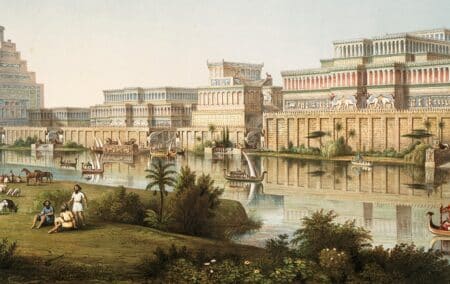A joint US-Iraqi excavation team working to reconstruct the ancient Mashki Gate of Nineveh, which Islamic State (IS) militants destroyed in 2016, has unearthed rock carvings dating back 2 700 years.
The eight marble reliefs show finely chiselled war scenes, grape vines and palm trees. According to the Iraqi State Board of Antiquities and Heritage, they date back to the Assyrian King Sennacherib, who ruled the ancient city of Nineveh from 705 to 681 BC.
The powerful king was known for his military campaigns, including against Babylon, and his vast expansion of Nineveh, the BBC reports.
Fadel Mohammed Khodr, head of the Iraqi archaeological team, told Agence France-Presse that it is believed the relics once adorned the king’s palace, and were then moved to the Mashki Gate.
The Mashki Gate was one of the largest in Nineveh, and was an icon of the city’s size and power. The gate was reconstructed in the 1970s, but was destroyed with a bulldozer by IS militants in 2016.
The militant group ransacked and demolished several ancient sites that pre-date Islam in Iraq, denouncing them as symbols of ‘idolatry’.
[Image: Artist’s impression of Assyrian palaces from The Monuments of Nineveh by Sir Austen Henry Layard, 1853]


